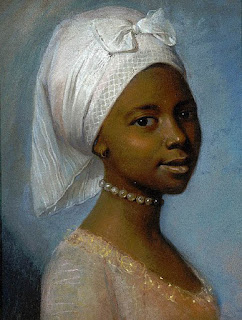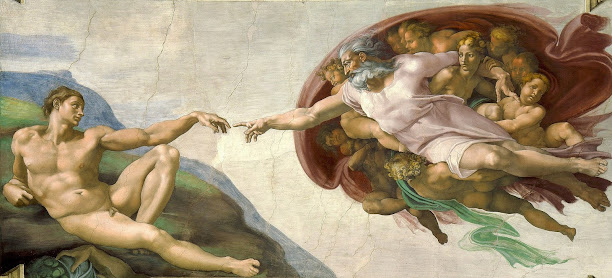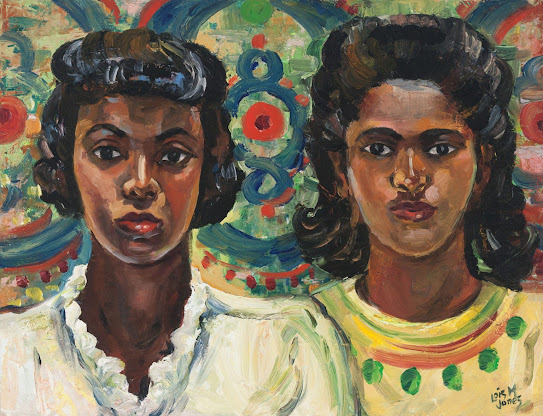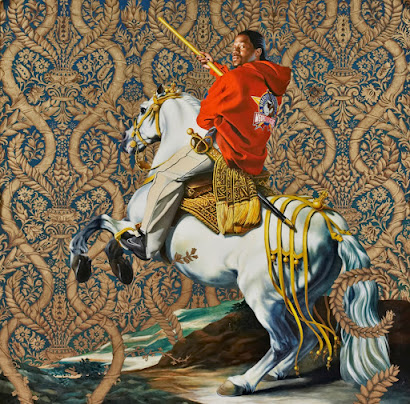Representation of Black Women in Native Son
The blind spot in Native
Son most discussed in class was that of the book’s representation of Bessie
and black women as a whole, and whether this representation is effective in its
depiction of the experiences of black women. To make a blanket statement, none
of the women in Native Son are developed enough as characters to be
depicted as full, well-rounded people. However, Bessie gets the brunt of this flat
representation as she is objectified, dehumanized, and devalued by Bigger
throughout the book, and then is literally treated as an object as her body is
brought out as evidence in court for the murder of a white woman. I think it
can be argued that there are reasons for this lacking depiction of Bessie, but
I do not think that this novel is at all an effective representation of what it
is like to be a black woman.
One can make the argument that Bessie
is depicted as a one-dimensional character because the narrator follows Bigger’s
thoughts, feelings, and actions, and Bigger himself lacks the emotional
development to be able to think of her as being as much a person as he is. I
think Bigger’s emotionally stunted way of viewing women and the way Bessie is
objectified in court can say something about the experiences of black women—Bigger
even directly acknowledges the implications of Bessie’s body being used in
court*—however I think that reading about a well-rounded black female character
would speak so much more to what being a black woman is like. To say that this one-dimensional
depiction of a black woman would be just as effective as actually developing Bessie’s
character and delving into her life is like saying a book from the perspective of
a white person who happens to live near black men is just as effective in
communicating the experiences of black men in this country as Native Son.
Additionally, I
think Ellison could have broken a bit from Bigger’s perspective or in some way
given Bessie some semblance of individuality. I personally think that since the
narration clearly isn’t coming directly from Bigger’s mind anyway, it would not
have felt that odd to gain a bit more insight about Bessie’s character. However,
I think it is fair to say that the manner in which this book was written does
not lend itself to having fully realized characters other than Bigger. But this
fact then starts a broader debate about whether it is okay for a novel or some other medium to focus
solely on the experiences of black men, or if black women should be given accurate
representation wherever there is representation for black men. I personally
think that whenever intersectionality is overlooked in discussions or
depictions of discrimination, it feels like something is missing, and Native
Son is no exception.
*Page 331: “Though he had killed a black girl and a white girl, he knew that it would be for the death of the white girl that he would be punished. The black girl was merely ‘evidence.’ And under it all he knew that the white people did not really care about Bessie’s being killed




It's super interesting to think about why Richard Wright decided to depict Bessie in this way. We as readers really have no idea if this perspective on women is coming from Bigger or directly a result of Wright's own beliefs/incompetence. I totally agree with you because even if Wright was trying to focus on the African American man's experiences exclusively, Native Son would be much better with more details on Bessie's life.
ReplyDeleteI definitely agree with what you're saying about Bessie here. I wish that Native Son were as much about her life and experiences as it is about Bigger, because they are very interesting characters to compare. However, most characters in this book are underdeveloped in my opinion, and hardly get any time for meaningful examinations of their actions, Bessie the most of all.
ReplyDeleteI totally agree, I think the argument of "Bessie is written as one dimensional because that's how people in society mistakenly view black women" doesn't make any sense. Writing about a character in the same way society sees people similar to that character will only reinforce their biases. If Wright really wanted to make change, he have written Bessie's character is more than what Bigger and the court think of her.
ReplyDeleteI agree with what you're saying here a lot. I would wonder whether Wright intentionally represented Bessie this way, although I'm not sure whether it matters if the representation is not well fleshed out. We can never really know what he was thinking when he wrote it and I'm not sure if it makes a difference anyway.
ReplyDeleteI totally agree that at the end of the day, you can develop a black female character and still accurately depict her experiences. However, Wright might not really understand that experience or be capable of writing about it. I think that even though his depiction of Bessie might have been intentional, I do not think it was a good idea.
ReplyDeleteI actually want to pose a slightly different take on how to approach this problem. While I certainly agree that Wright's treatment of Bessie creates a one-dimensional character who cannot in the slightest represent the experience of a black woman, I don't necessarily agree that Wright should have spent time to develop Bessie into a multi-dimensional character. I feel that developing Bessie in a legitimate way may detract slightly from the messaging of the novel. After all, Bigger himself is hardly a developed character in my opinion. Instead, I propose that, assuming Wright realized that he was depicting Bessie in a one-dimensional way and was doing it intentionally to represent Bigger's view of her, Wright should have included some commentary (subtle or not) about the way that Bigger sees her as completely one-dimensional and how that is not who she truly is. While there is one sentence within Max's preaching to the court where he comments on Bigger and Bessie not really seeing each other and just using each other, I don't feel like it was adequate to show the problem with Bigger's view. Just like we were able to have discussion about if we should see Max's interpretation of Bigger as valid, we should be able to have discussion about if Bigger's interpretation of Bessie is valid.
ReplyDeleteI'm torn on the Bessie issue. For one thing I do think Wright is self aware, as he calls out the treatment of Bessie as unfair directly in his narration, so I wouldn't call it a blind spot in that way. He also writes on how difficult her life is. However, he could have done more to highlight Bigger as an unreliable narrator in his perception of Bessie and give Bessie more distinct personality traits. And while yes I definitely agree that this book has no good representation of black women, I would argue that it's primarily about Bigger, and his faults, traits, and relationship with society, and that that in itself isn't necessarily a problem. The parts we do get with Bessie could just be of higher quality.
ReplyDeleteI agree with what you're saying about the feeling that something is missing when the opportunity for intersectionality is skipped over, and I think Richard Wright could've done a much better job of representing Bessie than just a simple afterthought about white people not caring about her murder. I also think that Wright should've taken some time to give Bessie her own space in the book, and I think fleshing her out even a little bit more would've made her treatment more impactful.
ReplyDelete